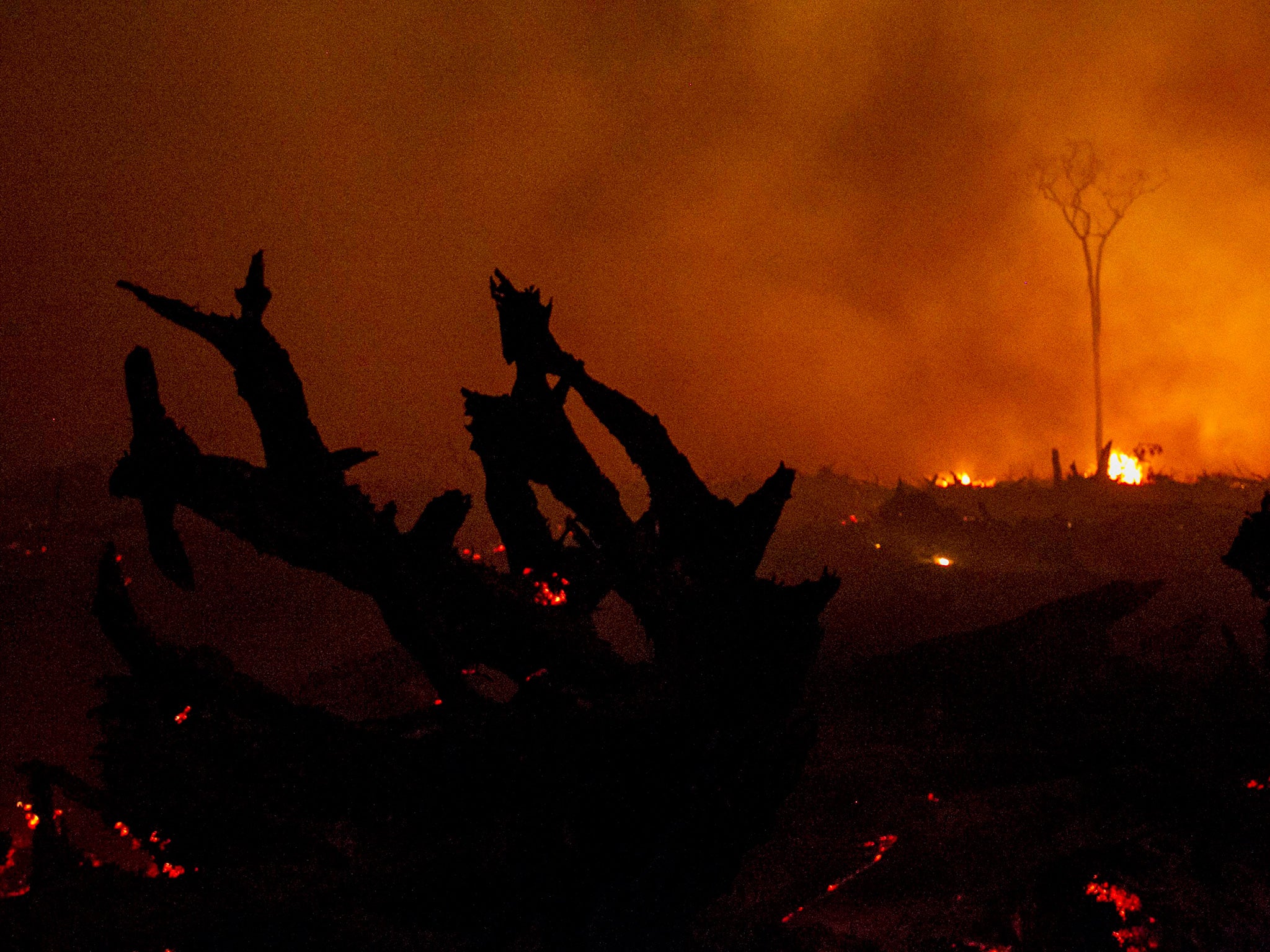Nature Studies: We care about the destruction of society, not the natural world
The first threat is that of the destruction of human society by global warming; the second is that of the destruction of nature by human society. They will do equal damage to the globe, but the international community cares only about the former

Your support helps us to tell the story
From reproductive rights to climate change to Big Tech, The Independent is on the ground when the story is developing. Whether it's investigating the financials of Elon Musk's pro-Trump PAC or producing our latest documentary, 'The A Word', which shines a light on the American women fighting for reproductive rights, we know how important it is to parse out the facts from the messaging.
At such a critical moment in US history, we need reporters on the ground. Your donation allows us to keep sending journalists to speak to both sides of the story.
The Independent is trusted by Americans across the entire political spectrum. And unlike many other quality news outlets, we choose not to lock Americans out of our reporting and analysis with paywalls. We believe quality journalism should be available to everyone, paid for by those who can afford it.
Your support makes all the difference.The rains finally came to Kalimantan, which the Indonesians call Borneo, on 26 October and at last began to damp down the terrible fires in its forests and peatlands which, for the past three months, have covered much of Indonesia and its neighbouring states in a pall of smoke so big it could be seen clearly from space.
Set deliberately to clear virgin land for palm oil plantations, Indonesia’s fires have been the major environmental disaster of 2015. According to the Global Fire Emissions Database at the Free University of Amsterdam, by 6 October no fewer than 120,857 of them had been detected by satellites across Sumatra as well as Kalimantan. Think about that.
If we have a big wildfire in Britain – the July 2006 fire at Thursley Common in Surrey springs to mind – it is front-page news. So imagine if we had 1,000 of them, all burning at once.
You can’t; it’s unimaginable. Yet Indonesia has just had that, 120 times over, and the endless conflagrations have destroyed thousands of hectares of pristine rainforest, killed countless wild creatures, notably orang-utans, and have emitted more carbon dioxide on a daily basis than the United States. But does anybody care? Or, to refine the question somewhat: does the international community care?
I think the answer is no. Not really. And the Indonesian fires of 2015 show up a great and tragic contrast between how we regard the two great environmental challenges facing the planet.
One of those challenges is climate change; the other is the ruin of the natural world. Let us be more precise: the first threat is that of the destruction of human society by global warming; the second is that of the destruction of nature by human society. They will do equal damage to the globe, but the international community cares only about the former.
And it certainly cares about climate change. The British Met Office warns that record temperatures measured in the first nine months of 2014 mean we are halfway to reaching the climate change “threshold” of 2C above pre-industrial levels, beyond which catastrophe is predicted. The World Meteorological Organisation says the world is heading into uncharted territory at “frightening speed”. I wrote last week about the forthcoming UN climate conference in Paris, which will attempt to put together a new climate treaty to curb the expected warming of the atmosphere from our emissions of greenhouse gases. All the major world leaders will attend and, before the meeting finishes in mid-December, millions more words will be written about it.
So climate change has now become accepted as one of the great political causes of liberal democracy, yet the destruction of nature – or, as we are supposed to call it now, biodiversity – has not. Even though it was the killing of the great whales and the destruction of the rainforests which sparked the environmental movement in the first place, these concerns have not galvanised the international community in the way that climate change has.
Consider: just as there is a UN climate convention, so there is a UN convention on biological diversity, the CBD – but comparatively few people have heard of it. And just as the meeting of the climate convention in Paris, which begins this month, will try to draw up a plan to halt global warming, so the biodiversity convention (which met in Nagoya, Japan, in 2011) did draw up a plan to curb world wildlife destruction. It set out a series of ambitious aims, known as the “Aichi targets”, to halt biodiversity loss around the world by 2020 – but I bet that, unless you’re a specialist, you’ve never heard of them. And I further bet that unless once again you’re a specialist, you’re not aware that the Global Biodiversity Outlook of the United Nations Environment Programme stated baldly last year that the Aichi targets were not going to be met.
Because the world community doesn’t care. It pays lip service, of course, to the idea of halting the destruction of the natural world, and leaders make appropriate noises. But the American and Chinese presidents are not going to turn up at any biodiversity conference any time soon, though they will both be present at the climate change conference in Paris. This year’s Indonesian fires, and the world community’s lack of concern for them, show it clearly: there are two great environmental challenges facing the planet, but only one is being taken seriously.
Join our commenting forum
Join thought-provoking conversations, follow other Independent readers and see their replies
Comments